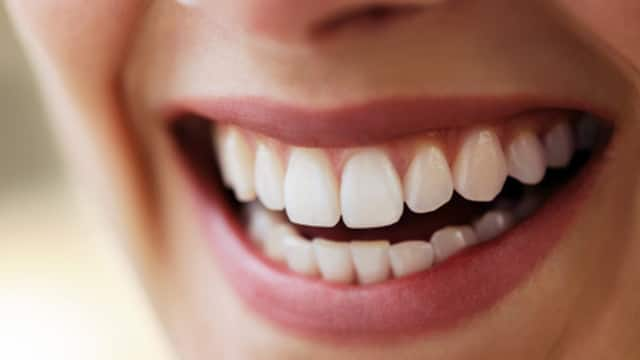Tooth Sensitivity
Tooth sensitivity is a simple term for root or dentine hypersensitivity. Periodontal disease and receding gums are two of the main culprits responsible for sensitive teeth: When the dentine on the root of a tooth becomes exposed, it has lost its protective enamel coating. Unprotected dentine allows food, plaque and acids to access and irritate the nerves deep in your teeth. This may result in tooth pain.
It's easily identifiable, too. If foods and drinks that are sweet, acidic, hot or cold cause discomfort upon contact, you might have sensitive teeth. Another symptom is the same feeling resulting from breathing in very cold air, and it can come and go. Unfortunately, it's quite common. Approximately half of the population has experienced tooth sensitivity at one time or another.
Effects of Sugar on Teeth
Although sugary treats are so satisfying, they can damage your teeth by wearing away its protective enamel. Sweet foods – usually those high in sugar – are one cause of tooth sensitivity. The sweets so many people crave are loaded with fermentable carbohydrates, which combine with bacteria in your mouth to form acids. Those acids contribute to enamel erosion. And the higher the sugar content in the food, the greater the acid production. Tooth decay is the ultimate result from enamel reduction, and incidentally, when you continue to consume these foods, that same sugary flavour can trigger the pain it created.
Remedies for Sensitive Teeth
If you suspect your teeth are sensitive to sugar, there are steps you can take to neutralise the effect. First and foremost, practice proper oral hygiene. Use a toothpaste specifically designed for sensitive teeth in order to keep clean without irritating your enamel further. Brush and floss after meals at work by keeping a brush and toothpaste in your desk drawer. Consider using your travel kit for this purpose.
Another tip is to alter your eating habits. Substitute snacks like cookies and candy for healthy, delicious fruits and vegetables. The same goes for what you drink; ditch those sugar-filled sodas for water to constantly wash away sugar-hungry bacteria. Chewing sugarless gum is another alternative that provides a sweet-tasting treat without the harmful effects of sugar collecting in your mouth. Nonetheless, if you think teeth sensitive to sugar is a chronic problem for you, consult your dentist.
Nobody says you can't spring for the occasional sweet treat. Who doesn't like a piece of cake every so often? But remember, everything is best in moderation.
This article is intended to promote understanding of and knowledge about general oral health topics. It is not intended to be a substitute for professional advice, diagnosis or treatment. Always seek the advice of your dentist or other qualified healthcare provider with any questions you may have regarding a medical condition or treatment.
ORAL HEALTH QUIZ
What's behind your smile?
Take our Oral Health assessment to get the most from your oral care routine
ORAL HEALTH QUIZ
What's behind your smile?
Take our Oral Health assessment to get the most from your oral care routine











